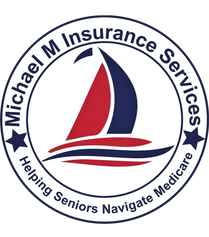When you turn 65 and enroll in Medicare, you’ll receive the iconic red, white, and blue card that gives you access to Part A (hospital insurance)
and Part B (medical insurance). But here’s the question many people ask:
“Can I just use my Medicare card and skip buying extra insurance?”
The short answer is yes—you can. But the better question is: should you?
In this blog, we’ll explore what it really means to rely on Original Medicare alone, the costs involved, what’s covered (and what’s not), and how it compares to adding a Medicare Supplement (Medigap) or Medicare Advantage plan.Limited Prescription Drug Coverage
Original Medicare does not include prescription drug coverage (except in very specific cases like medications administered in a hospital or doctor’s office). You’d need to enroll in a standalone Part D plan—or risk being on the hook for the full retail price of your prescriptions.
Important: Without supplemental coverage, you’ll be responsible for
these deductibles and coinsurance amounts in full .
For some healthy, low-risk individuals, it may seem like a simpler and less expensive option upfront. But if health needs change—and they often do with age—costs can rise quickly.
If you’re turning 65 soon or currently enrolled and considering going “bare” with just Medicare, take time to:
“Can I just use my Medicare card and skip buying extra insurance?”
The short answer is yes—you can. But the better question is: should you?
In this blog, we’ll explore what it really means to rely on Original Medicare alone, the costs involved, what’s covered (and what’s not), and how it compares to adding a Medicare Supplement (Medigap) or Medicare Advantage plan.
What Is “Just Medicare”?
When someone says they’re using “just Medicare,” they typically mean they have:- Part A (Hospital Insurance)
- Part B (Medical Insurance)
- No Medicare Supplement (Medigap) plan
- No Medicare Advantage (Part C) plan
- Possibly a standalone Part D drug plan (or not at all)
The Advantages of Using Just Your Medicare Card
Freedom of Provider Choice
Original Medicare is accepted by most doctors and hospitals across the U.S. If you want the flexibility to see any provider that accepts Medicare without network restrictions, this is a big plus.No Plan Networks or Prior Authorizations
Unlike many Medicare Advantage plans, Original Medicare doesn’t require referrals to see specialists or prior approval for many procedures.Simple and Familiar
For some individuals, especially those who travel frequently or spend time in multiple states, sticking with just Original Medicare can seem like the easiest route—especially if they’re healthy and rarely visit the doctor.The Downsides of Using Only Medicare
This is where things get more serious—especially when it comes to out-of-pocket costs.No Limit on Out-of-Pocket Costs
Original Medicare does not include a maximum out-of-pocket limit. This means:- A single hospital stay could cost you thousands
- Ongoing treatments (like chemotherapy or dialysis) can lead to large, recurring bills
You Still Pay 20% of Most Medical Costs
Medicare Part B only covers 80% of approved services. That leaves you responsible for:- 20% of doctor visits
- 20% of outpatient surgeries
- 20% of durable medical equipment
- 100% of excess charges (if your doctor doesn’t accept Medicare assignment)
No Extra Benefits
Original Medicare does not cover:- Dental care
- Vision exams or glasses
- Hearing aids
- Fitness memberships
- Transportation or over-the-counter benefits before discarding them
Understanding the Costs of Just Medicare
Here’s what you could expect to pay under Original Medicare in 2025:| Coverage Type | Your Cost in 2025 |
|---|---|
| Part A Premium | $0 (if you worked 40+ quarters) |
| Part A Hospital Deductible | $1,676 per benefit period |
| Part A Coinsurance | $419/day (days 61–90); $838/day (after day 90) |
| Part B Premium | $185.00/month (standard amount) |
| Part B Deductible | $257/year |
| Part B Coinsurance | 20% of Medicare-approved services |
| Part D Premium | Varies (if enrolled) |
When Might Using Just Medicare Make Sense?
There are some specific scenarios where relying on Original Medicare alone may work:- You are very healthy and rarely use medical services
- You have limited income and qualify for Medicaid or Medicare Savings Programs that help cover your costs
- You are eligible for VA benefits and get care through the VA system
- You are comfortable with financial risk and prefer the simplicity of Original Medicare
How Do Medigap and Medicare Advantage Plans Compare?
Here’s a quick overview of how supplemental coverage compares to going it alone:| Feature | Medicare Only | Medigap + Medicare | Medicare Advantage |
|---|---|---|---|
| Monthly Premiums | Part B only ($185.00) | Part B + Medigap + Part D (typically $250–$300 total) | Often Part B only; sometimes extra plan premium |
| Doctor Choice | Any Medicare provider | Any Medicare provider | Network-based (HMO/PPO) |
| Out-of-Pocket Limit | None | Very low (some plans cover almost everything) | Yes (max $8,850 in 2025) |
| Covers 20% Coinsurance | No | Yes | Yes (varies by plan) |
| Drug Coverage | Separate Part D plan needed | Separate Part D plan needed | Often included |
| Extras (dental, vision, etc.) | No | No | Often included |
Conclusion: Should You Stick with Just Medicare?
Relying solely on Original Medicare is legally allowed, but it comes with significant risks—especially financial ones. Without a Medigap or Medicare Advantage plan, you are exposed to unlimited out-of-pocket costs and gaps in drug and ancillary benefits.For some healthy, low-risk individuals, it may seem like a simpler and less expensive option upfront. But if health needs change—and they often do with age—costs can rise quickly.
If you’re turning 65 soon or currently enrolled and considering going “bare” with just Medicare, take time to:
- Evaluate your current health and prescriptions
- Understand the full scope of potential out-of-pocket costs
- Explore your eligibility for savings programs or VA benefits
- Compare the value of Medigap and Medicare Advantage options
Is there a limit to what I can spend with my Medicare Card?
No, there is no out of pocket limit with Original Medicare.
I don’t take Medications, do I have to add a Part D Rx Plan to my Medicare Card?
No, but if you don’t add an Rx Plan when first eligible you will receive a penalty.
Can I go to any Hospital and see any Doctor in any State with my Medicare card?
Yes, 99.999% of Doctors and Hospitals will accept the Medicare card.
Mike Miligi- Owner
For over 10 years, Mike has been assisting Seniors and other Medicare-eligible individuals in understanding the ins and outs of Medicare and Medicare Health Insurance options, including Medicare Advantage Plans(Part C), Medicare Supplement Plans(Medigap), Prescription Drug Plans(PartD), and Dental and Vision programs.
Mike is Licensed in seven States and Certified with 11 Insurance Carriers. He has helped thousands of individuals decide on the best course of action for their particular Health Insurance needs. Because Mike is an Independent Medicare Health Insurance Broker, he works for the client, not the Insurance Carriers, and is able to provide his clients with accurate and unbiased Health Insurance options.
Mike recertifies with CMS(The Centers for Medicare and Medicaid Services) annually, regularly completes Continuing Education Courses required by individual State Insurance Departments, and keeps abreast of industry trends and standards to offer his clients the most up-to-date information.

